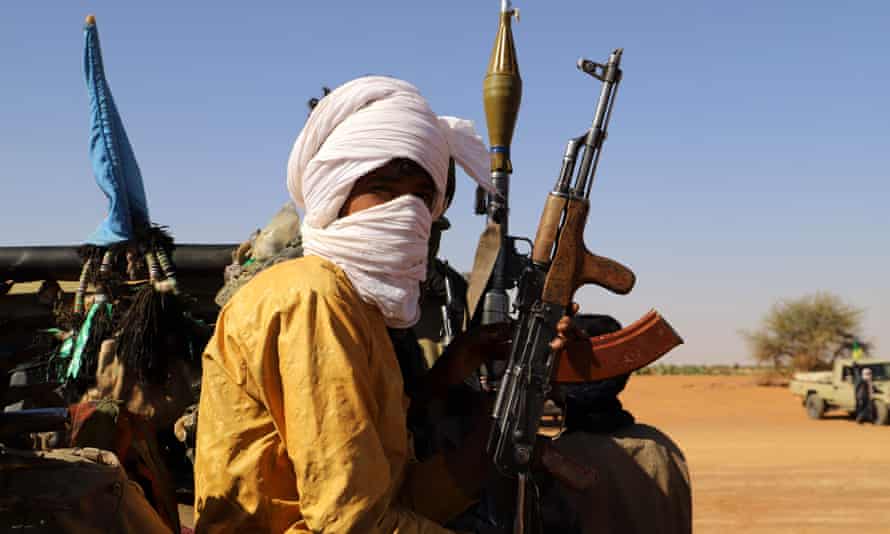Report says pandemic gives Isis and al-Qaida opportunity to undermine governments in conflict zones

Islamic extremists are planning a possible “rash of pre-planned attacks” when restrictions on movement imposed during the Covid-19 pandemic are lifted, the United Nations has warned.
A report based on intelligence received from member countries over the last six months says Islamic State will seek to “end its marginalisation from the news” with a wave of violence and notes that the group recently urged supporters to spend less time on social media to free up time to launch operations against its enemies.
“Isis has enjoyed a captive audience, with so many people facing restrictions on movement and spending more time online. Threats may have accumulated during this period that remain undetected but could manifest in due course,” says the report, by specialists at the UN who monitor international sanctions against al-Qaida and Isis.
In October, the Isis spokesman Abu Hamza al-Qurashi called on supporters of the group “to spend less time on social media and more effort on high-impact attacks, jail-breaks and other operational activity”.
Although the threat of terrorist attacks by Islamist extremists remains relatively low in “non-conflict zones” such as Europe, the UN analysts believe the pandemic will provide significant opportunities to Islamic extremists by undermining local governments in parts of the world where they are already well-established.
“The pandemic has weakened the hand of governments in conflict zones more than it has inhibited terrorist groups, and its long-term impact on economies, government resources and allocations for international cooperation risks aggravating the threat further,” the report says.
This was particularly true in sub-Saharan Africa, one of the few parts of the world where Islamist extremists have made substantial progress recently.
Ten soldiers were killed in Mali’s troubled central region of Mopti earlier this week when their camp came under attack from Islamist extremists, who have expanded rapidly in the Sahel in recent years.
Islamist extremist groups have reacted in different ways to the pandemic, some seeking to exploit the global crisis to launch fresh attacks, with others concentrating primarily on bolstering local support.
The responses have broadly followed existing strategic choices made by groups such as al-Qaida and Isis.
Initially, Isis gloated over Covid-19 in its magazine, al-Naba, describing the virus as a punishment for “Crusader nations”, and calling for strikes against the west as it reeled from the pandemic. However, subsequent editions have carried lengthy articles saying it would be wrong for Muslims to believe they would be spared by the disease.
In contrast, al-Qaida issued six pages of advice and commentary on Covid-19, arguing that though the virus had cast “a gloomy, painful shadow over the entire world”, the arrival of the pandemic in the Muslim world was a consequence of “our own sins and … the obscenity and moral corruption … widespread in Muslim countries”.
The UN report says Isis continues to emphasise the “divine punishment of arrogance and unbelief” narrative regarding the pandemic, and to exhort followers to attack the enemy while counter-terrorist defences are supposedly weakened.
However, the idea of weaponisation of the virus by using contagious supporters to infect opponents, which was suggested within Isis in March, “has not progressed as a practical proposition”.
The report underlines the continuing resilience of Islamic militant groups but said many have met with significant setbacks: al-Qaida has lost a large number of key leaders, the battle for influence among extremist actions in Africa’s Sahel region has been costly, and Isis is still unlikely to be able to take and hold any significant territory in Iraq or Syria soon.
